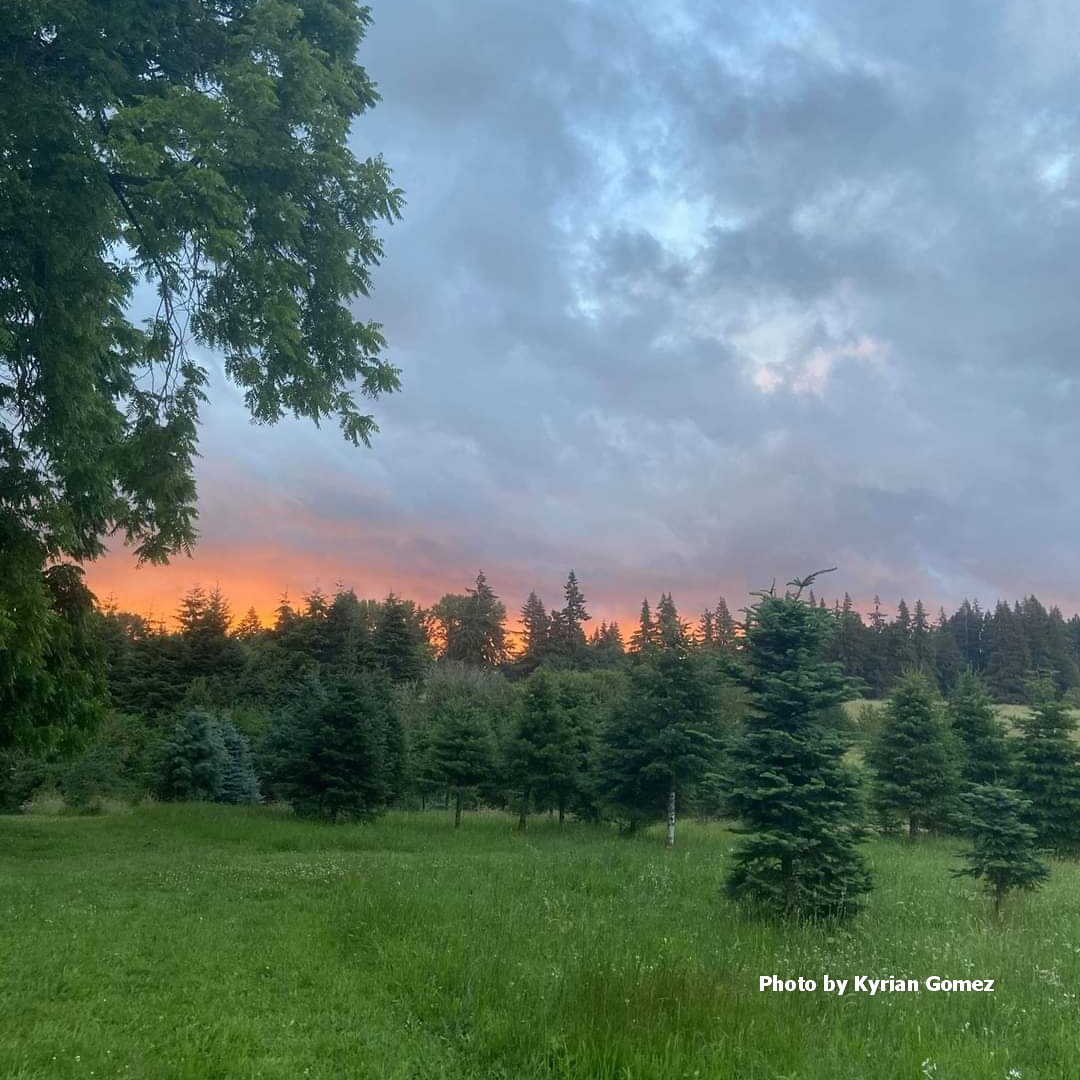Taking Root on a Christmas Tree Farm
Environmentalists come from many backgrounds with a variety of experiences – and living in the Pacific Northwest, it’s hard not to become one. Despite being fortunate enough to grow up in Washington, my personal journey to the field of environmental work didn’t stem from camping in state parks or hiking trips up in the mountains. It actually started with me growing up in a place where trees were grown specifically to be cut and sold: A Christmas tree farm.
I was morally opposed to it for a very long time. To me, trees have intrinsic value and I hated that they were cut for a seasonal celebration, only to be tossed out when the holiday was over. Once a year, trees served as a commodity – but for the rest of the year, they were my own personal forest. My friends and I would spend hours running around in the trees, playing adventure games or walking dogs. We had lots of wildlife that lived in the forest or passed through – coyotes, deer, hawks, and even the occasional cougar. The forest was a habitat, an ecosystem, and my home.
The forest farm was also a school: My first plant ID was the Noble fir, a very popular household holiday tree. I learned that ladybugs are a good solution for aphids, and that stinging nettle is not to be trifled with. I also learned to care about the forest itself, and every winter I got to see how it impacted other people, too. I watched strangers step foot in the young forest and get excited about the trees, and see how even though they were going to be cut down, that the trees brought a lot of joy to everyone present. I learned to love the feeling of bringing people outside and seeing their happiness in nature, however brief the experience.
Growing up, environmental issues were close to home for me. When I read about other forests being chopped down, I thought about my own and how much it broke my heart. When I learned about the importance of recycling and the loss of our natural areas, it was all relatable — from the trash that would get dumped on the side of the road along the edge of the farm, to the slow loss of nearby forests to housing developments in my small town. To me, everything was related to the patch of forest I lived in. It wasn’t about ownership of the land, but rather responsibility to the land.
I took my passion for these issues to college, where I got a degree in natural resource management. I’ve spent years performing environmental education and stewardship work. I love educating people about topics close to my heart, and I especially love bringing youth closer to outdoor spaces, remembering the joys of my own childhood. Now, living in an apartment in the city, I am constantly reminded how lucky I was to have had so much nature directly at my fingertips. But I also remember the unique experience I was given, to see that just because we use trees as a product doesn’t mean that we only view them in that way.
There is a long journey ahead of us all to restore and steward the land, and to shift our views from ownership to responsibility. I think back now to how little I truly knew about the land I grew up on, including the history of the people who belonged on the land long before me. I am grateful to have grown up on that tree farm, and even more that I get to spend the rest of my life learning and sharing knowledge with others, to foster connection, understanding, and appreciation so that we continue to have healthy forests for future generations to enjoy.
